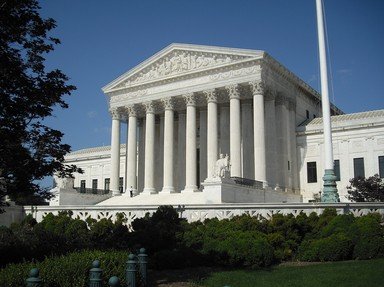Quiz Answer Key and Fun Facts
1. The plaintiff presents the argument that his thirteenth and fourteenth amendment rights have been violated because he was arrested for refusing to leave a "whites only" railroad car. You rule in a 7-1 decision that his rights have not been violated, and that "separate but equal" facilities are constitutional. This case is known as:
2. The case is made that the separate schools for black students do not provide the equal opportunities that white schools provide, and therefore the Equal Protection clause of the fourteenth amendment is violated. You and the court agree, and rule 9-0 that segregation is unconstitutional.
3. A white medical school applicant is arguing the case that his fourteenth amendment rights have been violated under the Equal Protection Clause because he was denied admission, even when his test scores were higher than those who had been accepted, who were of a different race. You rule in a 5-4 decision in favor of the student. This case is known as:
4. The plaintiff says that the court should send a "writ of mandamus" to the Secretary of State so that he will be forced to deliver his commission that will allow for him to become a judge. This case is known as:
5. An African-American slave is making the case that since he lived in a free state for a time, he should be a citizen of the United States. His plea is rejected, and you rule in favor of the property owner. This case is known as:
6. This plaintiff argues that her Fourteenth Amendment rights, specifically the Equal Protection Clause, have been violated because when applying to undergraduate school, more points are automatically given to racial minorities, instead of basing it on the individual. This case is known as:
7. You rule that because of the United States Commerce Clause, found in the Constitution, this owner is not able to refuse service to African-Americans. This case is:
8. It's 1973 and the plaintiff is making the case that because she cannot have an abortion, her right to privacy, found in the Fourteenth Amendment has been violated. This controversial case is known as:
9. In this case, you hear that this Amish man wants to take his child out of public school, and home-school him, because of religious reasons. However, state laws outlaw homeschooling, and so it would be unlawful for this man to take his child out of public schooling. You rule in favor of the Amish man. This case is known as:
10. You hear that a state law banning contraceptives is violating the plaintiff's right to privacy. The court agrees and rules against the state. This case is known as:
Source: Author
bballchick08
This quiz was reviewed by FunTrivia editor
trident before going online.
Any errors found in FunTrivia content are routinely corrected through our feedback system.

